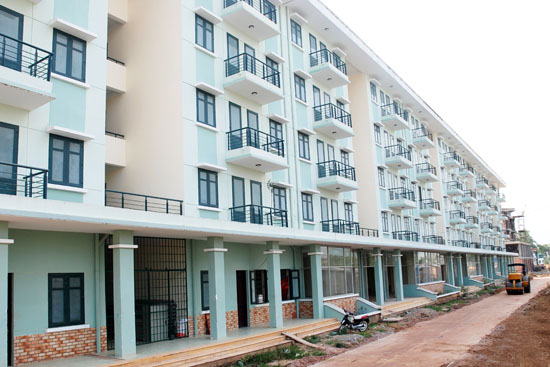After nearly 13 years of implementation in real life, the 2001 Ordinance on Fees and Charges has revealed many inadequacies and limitations. The 2015 Law on Fees and Charges of Vietnam was enacted to address these limitations.
As an important law, it represents a new turning point and creates a more complete and synchronized legal corridor for the management of fees and charges. The 2015 Law on Fees and Charges has several notable new points as follows:
Detailed regulations on the scope of adjustment and applicable subjects
According to the law, it applies to subjects related to the collection, payment, management, and use of fees and charges, including:
- State agencies (including Vietnamese representative agencies abroad)
- Public service providers
- Organizations
- Individuals
The 2015 Law on Fees and Charges of Vietnam stipulates the List of fees and charges; fee payers; fee collectors; principles for determining the rates of collection, exemption, reduction, payment, management, and use of fees and charges; authority and responsibility of state agencies and organizations in managing fees and charges.
Thus, the scope of adjustment under the 2015 Law on Fees and Charges specifies the List of fees and charges; principles for determining the rates of collection, exemption, reduction, and responsibility of state agencies and organizations in managing fees and charges.
List of fees and charges
Aiming to encourage private investment, reduce the burden on the state budget, and create competition to better serve the needs of the people nationwide, some fees in the list of fees and charges issued with the 2001 Ordinance on Fees and Charges have been switched to a pricing mechanism. In which, some services, although switched to a pricing mechanism, still require state price management such as irrigation fees; market fees; road use fees; parking fees...
Thus, according to the list of fees and charges issued with this law, there will be 213 fee items, 103 charge items, and 17 services transferred from fees to state-priced services. Below is the list of 17 products and services shifted from fees to state-priced services:
LIST OF PRODUCTS AND SERVICES SHIFTED FROM FEES TO STATE-PRICED SERVICES
| No | FEE NAME | PRODUCT, SERVICE NAME |
| 1 | Irrigation fee | Irrigation public utility product, service |
| 2 | Drug testing fee for animals, plants | Drug testing service for animals, plants |
| 3 | Fee for measuring, mapping cadastral maps | Measuring, mapping cadastral maps service |
| 4 | Market fee | Service for using trading area in markets |
| 5 | Road use fee | Service for using roads of road construction investment projects for business purposes |
| 6 | Ferry crossing fee | Ferry crossing service |
| 7 | Port, station use fee | Port, station use service |
| 8 | Pilotage, navigation fee | Pilotage, navigation service |
| 9 | Transport vehicle inspection fee | Transport vehicle inspection service |
| 10 | Technical inspection fee for machinery, equipment, materials and substances requiring strict safety regulations | Technical inspection service for machinery, equipment, materials and substances requiring strict safety regulations |
| 11 | Parking fee | Parking service |
| 12 | Epidemic prevention fee | Service for animal vaccination, sterilization, disinfection, veterinary diagnosis |
| 13 | Medical quarantine fee | Medical quarantine, preventive healthcare service |
| 14 | Drug sample, raw material testing fee | Drug sample, raw material testing service |
| 15 | Environmental protection fee for solid waste | Solid waste treatment service |
| 16 | Sanitation fee | Garbage collection, transportation service |
| 17 | Securities operation fee | Securities services field |
Regulations on exemption and reduction of fees and charges
Subjects eligible for exemption and reduction of fees and charges include:
- Children;
- Poor households;
- Elderly persons;
- Persons with disabilities;
- Persons with meritorious services to the revolution;
- Ethnic minorities in areas with special economic and social difficulties;
- Some special subjects as prescribed by law.
Subjects eligible for exemption and reduction of court fees and charges will be specified by the Standing Committee of the National Assembly or the Government of Vietnam for each type of fee and charge under its authority.

Contents of management and use of fees and charges
The management and use of fees and charges have been specified in the law and ensure consistency with the 2015 State Budget Law.
For the collection, management, and use of fees:
- Fees collected from service activities carried out by state agencies must be paid into the state budget. In cases where state agencies are allowed to deduct operating costs from fee revenues, the remaining portion must be paid into the state budget.
Fees collected from service activities carried out by public service providers may be partially or fully retained to cover the costs of providing services, collecting fees based on estimates approved by competent state agencies, with the remaining portion to be paid into the state budget.
- The deductible and retained fees are used as follows:
+ The fees retained for the collecting organization to cover the costs of providing services and collecting fees. Depending on the nature and characteristics of each type of fee, the competent state agency decides the retention rate for the collecting organization;
+ The retained fees are managed and used according to legal regulations; they must be settled annually. Unspent fees for the year will be carried over to the following year to continue expenditures in accordance with regulations.
- Fees collected from service activities carried out by organizations authorized by competent state agencies may be partially or fully retained to cover the costs of providing services, collecting fees; the remaining portion must be paid into the state budget. The management and use of fees collected are in accordance with legal regulations.
For the collection, management, and use of charges:
- Organizations collecting charges must fully and promptly pay the collected charges into the state budget.
- The expenditure cost for collecting charges is allocated in the budget estimates of the collecting organization according to policies and budget expenditure norms as prescribed by law.
- Key word:
- 2015 Law on Fees and Charges
 Article table of contents
Article table of contents





.Medium.png)
.Medium.png)
.Medium.png)
.Medium.png)
